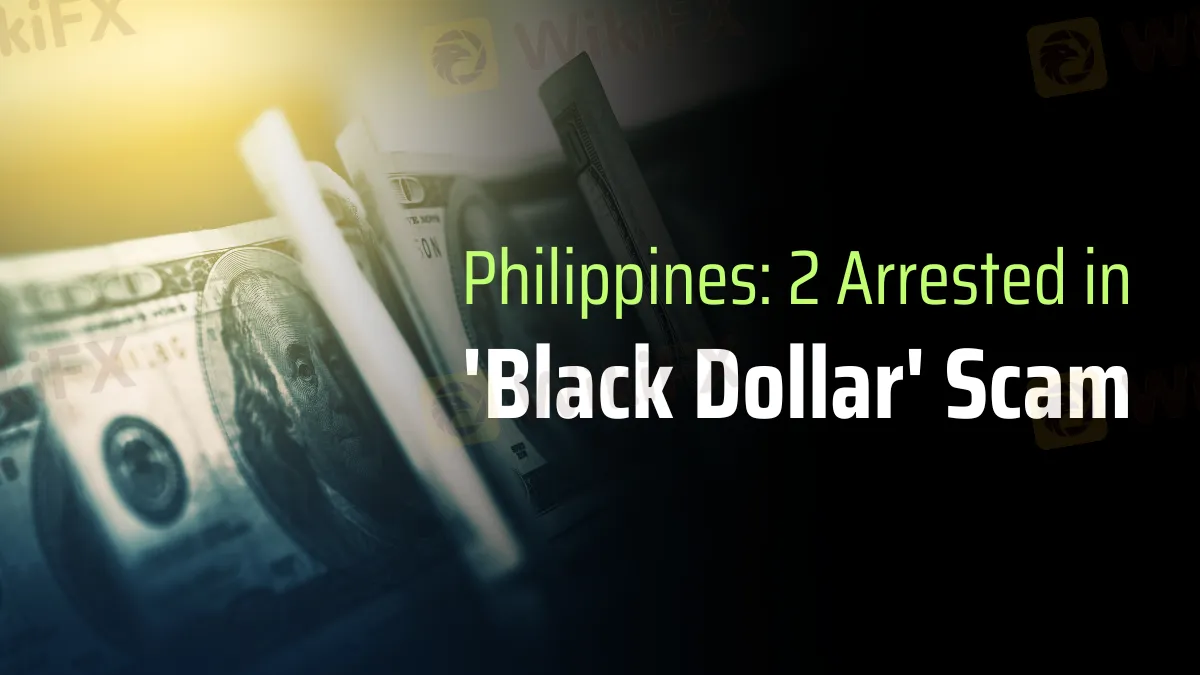Philippines: 2 Arrested in 'Black Dollar' Scam
Abstract:Two suspected scammers were arrested in the Philippines for a 'black dollar' scam, deceiving victims into buying chemicals to clean and convert counterfeit currency.

The National Bureau of Investigation (NBI) apprehended two suspected fraudsters in accordance with the Revised Penal Code and the Cybercrime Prevention Act. The accused reportedly duped their victims into purchasing chemicals to “clean and convert” counterfeit cash into US dollars.
The fraud included persuading victims that certain chemicals, when appropriately combined, could change counterfeit cash into genuine US dollars. So-called “black dollar” fraudsters in the Philippines have utilized this intricate deception to deceive their naïve victims.
The NBI's Cybercrime Division (NBI-CCD) conducted a sting operation that resulted in the arrest of two African males participating in the “black dollar” scheme. The investigation began on Wednesday in response to a report from a victim who had fallen victim to the fraud.
Arrest Details
The operation began when a complaint was made against a man masquerading as “Dr. Paul.” NBI agents captured Khan Fonkam and his brother Awa Fonkam, both Cameroonians, at Bonifacio Global City (BGC), Taguig, following Director Jaime Santiago's orders.

The Scam Emerges
According to the lawsuit, “Dr. Paul” solicited the victim about investing in the Philippines. They met at a hotel in Makati City on July 5, 2024, and the victim gave them Php400,000 (about $6,844).
“Dr. Paul” then carried out a bogus “decoding process,” which included powdering the money and wrapping counterfeit notes in foil before immersing them in boiling water. He advised the victim not to open the package for 24 hours to enable the chemicals to “work.”
Suspicion and Discovery by the Victim
The victim opened the gift at home, suspicious, to see just black paper inside. When he sought to call “Dr. Paul” for an explanation, he was informed that they couldn't meet and that Php50,000 (about $855) was required for more drugs.
Further inquiry showed that “Dr. Paul” was Khan Fonkam, whom the NBI-CCD had previously captured on May 31, 2024. This finding led the victim to notify police about the deception.
Charges Filed
The accused are currently facing charges at Taguig City Prosecutor's Office. They are accused of estafa (Article 315 of the Revised Penal Code) and unlawful possession and use of counterfeit money (Article 168 of the Revised Penal Code). These accusations are related to Section 6 of Republic Act No. 10175, generally known as the Cybercrime Prevention Act of 2012.
The NBI's quick response in apprehending these fraudsters exemplifies continuous efforts to fight cybercrime and safeguard individuals from deceptive scams. Victims of such scams are advised to report them to authorities so that these misleading tactics might be put a stop to.

Read more

JPMorgan Expands Rapid Forex Settlements with JPM Coin Blockchain
JPMorgan to offer instant USD/EUR settlements via JPM Coin, with plans to include GBP. Blockchain tech aims to streamline forex for fintech firms.

Saxo Singapore Discontinues SaxoWealthCare and SaxoSelect
Saxo Singapore will discontinue SaxoWealthCare and SaxoSelect by December 2024, advising clients to withdraw funds and offering alternative investment options.

SEC Seeks to Dismiss Kraken's Defenses in Legal Case
The SEC intensifies legal action against Kraken, arguing the exchange operates as an unregistered securities platform. Kraken fights back with multiple defenses.

Caroline Ellison Begins Two-Year Sentence for FTX Scandal
Caroline Ellison, former CEO of Alameda Research, begins a two-year prison sentence for her role in the FTX fraud, following her guilty plea and testimony.
WikiFX Broker
Latest News
US Presidential Election in Overdrive: Exploring Forex Wealth Codes with WikiFX App
Do You Really Know Your Trading Game?
CySEC Tightens Compliance Rules for Crypto and FX/CFD Brokers
Will Trump's reelection drive more market growth?
How U.S. Elections Have Influenced Financial Market Trends Since 2000
Zenstox: A Trader’s Nightmare? An Inside Look at Alleged Scams and Unethical Practices
eToro sponsors the Bitcoin Mena Conference
FCA WARNING AGAINST Touchstone Markets
Caroline Ellison Begins Two-Year Sentence for FTX Scandal
FCA Convicts 2 Individuals from CCX Capital & Astaria Group in £1.5M Crypto Scam
Rate Calc
